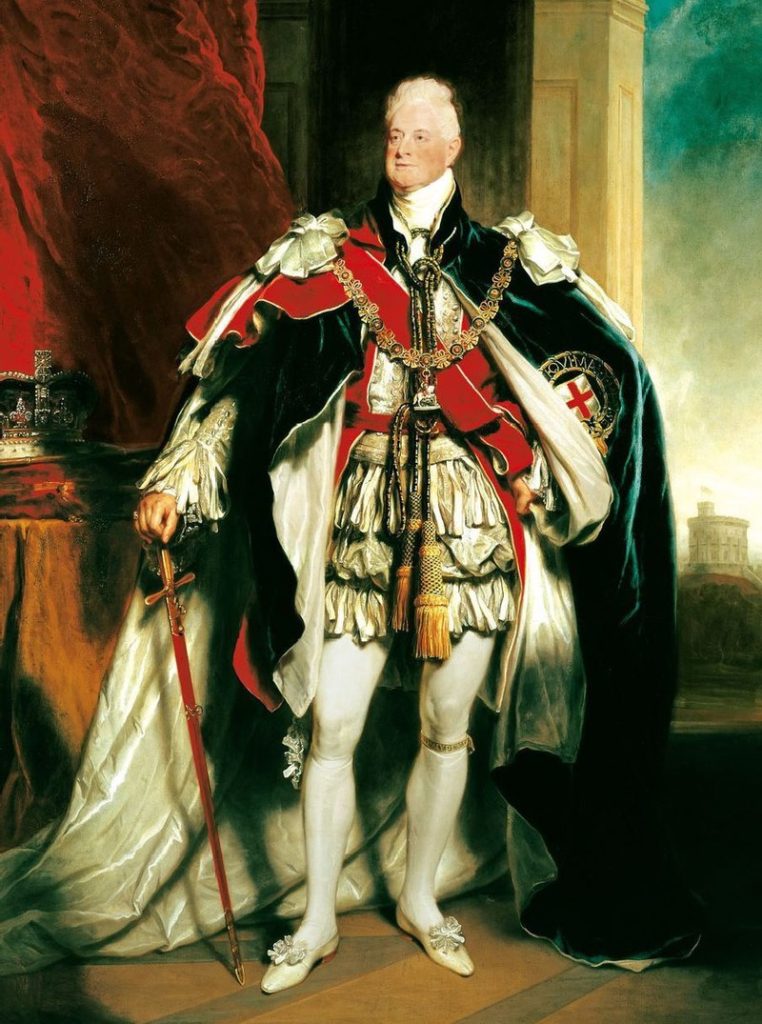Turning something off and then on again is a common trick for dealing with faulty electrical components in a device but you don’t often associate this troubleshooting process with national governments. We probably should start thinking about it however because the world seems to be going through a bit of upheaval at the moment, so a bit of a forced reboot might do us all some good.
The British Parliament, the oldest in the world, has not been rebooted for three years; making it the longest sitting of Parliament since the time Cromwell forcibly dissolved the Long Parliament, which sat for thirteen years, after the English Civil War. Parliament hasn’t been prorogued (the formal name for bringing the current Parliamentary session to an end but not calling a General Election) for over three years, which is why Britain has gone long enough between Queen’s Speeches to start getting a little twitchy. It’s not good for a Brit to go a long time between sessions of pomp and circumstance, you know.
So with the Prime Minister, Boris Johnson, today announcing that he will call for a prorogation of Parliament followed by a Queen’s Speech to outline his Government’s new agenda, the political commentariat naturally went insane. Apparently proroguing Parliament is now seen as “fascist” and “anti-democracy”, even though it’s actually neither of those things because of course it isn’t. Anyone would think you can’t believe a word some people say on Twitter!
Anyway, in the hope of restoring some sense of normalcy to the proceedings (hey, we can hope!) today we would like to outline four other times Parliament has been prorogued in the UK. We’ll start with…
4. To Gloss Over the “Cash For Questions” Scandal
Back in 1997, the Conservative Government of Sir John Major was embroiled in scandals and on the verge of losing power to Tony Blair’s “New Labour” (which may have been “new” but was hardly “Labour” because nothing in politics ever has to make sense, apparently).
One of the biggest scandals of the day was “cash for questions”, where two Members of Parliament had taken bribes in exchange for asking questions in Parliament and performing some other tasks on behalf of the owner of Harrods.

This scandal began in 1994 but was really, really big by 1997; which was an election year. A report was about to be published in March 1997 that would seriously harm Major’s Government and at that point, he prorogued Parliament for six weeks.
Now you might think that wouldn’t make much of a difference in the great scheme of things but there was method to the madness. You see, since no Parliamentary business can be conducted during a prorogation, this delayed the release of the report. It didn’t stop Major losing the election to Blair that May however, so maybe there wasn’t so much method in the madness after all.
3. To Defeat Anti-Reformationists
Back in 1831, the great crisis of the day was the First Reform Bill; one of those many times when Britain decided to re-write part of its unwritten Constitution (see, I told you politics doesn’t need to make sense). The Government was initially defeated during the reading of the Reform Bill and decided it may need a General Election in order to sort the mess out (you may now be seeing some similarities with what’s going on in the UK today) but this move was strongly opposed by the Opposition; who didn’t like a number of changes to how Parliament would be composed that were contained in the Bill.
What was a Government to do in this situation? Well, they could prorogue Parliament, of course! King William IV really liked this idea because he was throughly ticked off by the antics of the Opposition. Moreover, the King decided to prorogue Parliament in person, because while he could send a Commissioner to do it for him, Parliament had the ability to make that Commissioner wait until they were finished with whatever business they were conducting before hearing him. If the King turned up, everyone had to stop what they were doing and listen.

So what was Parliament doing that made the King decide he couldn’t have a Commissioner waiting around all day for them to finish? They were debating a motion from the Opposition against dissolving Parliament to call a General Election. “We’ll put a stop to that!” the King may have thought – and quite possibly he did think that because when he was told his horses couldn’t be readied in time to get him to Parliament, he took a taxi there instead.
You’ve got to know you’ve messed up if the King is so vexed he calls for a 19th Century Uber just so he can pop across town and tell you to shut the hell up.
2. To Enable Nationalisation
After the Second World War, the Conservative Government of Sir Winston Churchill was defeated by the Labour Party under Clement Atlee. Atlee really wanted to nationalise a lot of British Industry and he knew the House of Lords wouldn’t be too keen on some of his plans and would therefore try to drag things out in the hope of getting to the end of the Parliamentary term before Atlee’s plans could be completed. So the new Prime Minister decided the best thing to was to amend the Parliament Act and thus reduce the amount of time the Lords could delay Government legislation.
As you might expect, that wasn’t something the House of Lords liked the idea of. They blocked the changes to the Parliament Act and then blocked them again before the Parliament Act was used to force the Lords to accept the changes. You read that right, the Government used the Parliament Act to change the Parliament Act; because sometimes Politics is based on Ouroboros, the snake that eats itself.
The problem was, the existing Parliament Act still gave the Lords the delay they were seeking, because it allowed them to delay legislation across three “sessions” of Parliament. Prime Minister Atlee found a cunning way of getting around this by simply shrinking the length of one Parliamentary session. How could he do this? By proroguing Parliament and thus cutting one session down to only a few weeks in length.
1. Every Year
Proroguing Parliament is something that happens so often they had to invent a fancy name for it (if you haven’t guessed what that name is yet, we used it at the start of this sentence). Normally, Parliament is prorogued around the start of May so everyone can have the summer off to go back to their constituencies and get shouted at by angry locals. It’s another of those lovely British traditions where we get really angry with the people we elected, then usually elect them again anyway.
Annual prorogation normally lasts for a few weeks and is then formally ended by the State Opening of Parliament and a Queen’s Speech. Britain hasn’t had any of this since 2017 because the previous Prime Minister, Teresa May, kept Parliament open to deal with Brexit; which it then utterly failed to do and that’s pretty much how we got into the mess we are all in right now.
Prior to the standardisation of a Parliament that sits all year ’round, proroguing Parliament was something that happened at the end of any session where the Monarch called for a Parliament to sit. Back at the start of the Parliamentary system, Parliaments were called to deal with certain issues and then would be prorogued until another reason to call a Parliament came up. King Charles I did this in 1628, for example, when he gave a speech that effectively told Parliament he wouldn’t call it again until he needed more money.
Nowadays we tend to keep our MPs where we can see them by having Parliament run all year ’round, so prorogation has become a means to shut down Parliament for a few weeks between one year-long session and the next.
So as you can see, prorogation is hardly an end to democracy, it’s just something that happens and which used to happen regularly. The fact that we haven’t had a prorogation for a few years was the odd event, not the return to shutting Parliament down for a while so the Government can gets its new agenda for the coming year into place.
So let’s all put the torches and pitchforks down for the moment. This isn’t the crisis some would like you to believe. Save your energy for when a real problem comes up.

Leave a Reply